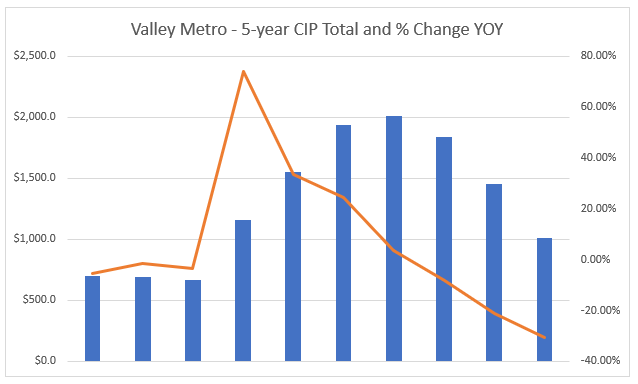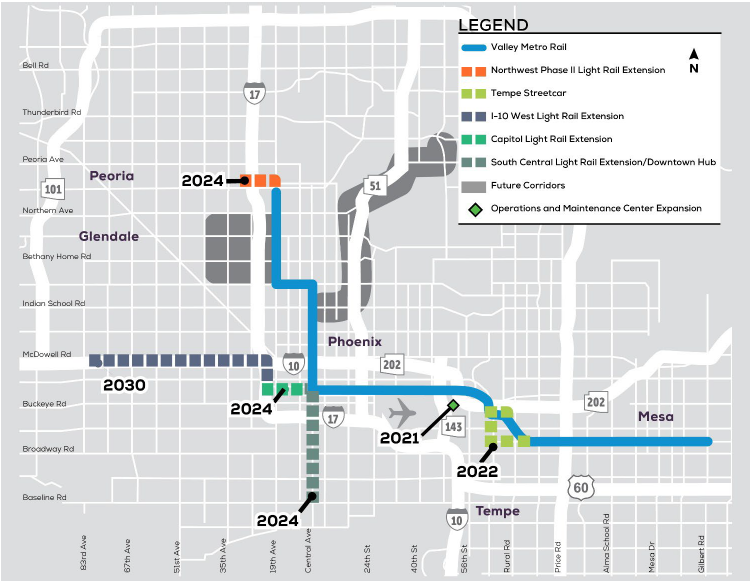By Rebekah Morris for AZBEX
The FY 2023 – 2027 Capital Improvement Program for Valley Metro continues to show declines in the five-year total. This year’s total comes in at $1.009B – the third year in a row the capital program shows a decline, as noted in the table.
The decline is due to major capital projects wrapping up without new ones being added behind them. Unlike municipalities – which typically have expansion projects added to their CIP every year – Valley Metro’s projects are longer-range and have mostly been announced and contracted.
Shift from Expansion to Maintenance
The first 20 miles of Light Rail Transit opened to the public in December 2008, fulfilling the organization’s stated original purpose. Three extensions have since opened, and an additional 40 miles of High-Capacity Transit are being constructed or planned for future years.
Now that the major initial segments and extensions have opened, the CIP shifts from expansion to maintenance of existing public assets, noted as ‘State of Good Repair’ in the CIP.
Major Projects in Process
Two LRT capital projects are still under construction, with two additional segments that have not yet entered that phase. Further capital expenditures include purchasing additional light rail vehicles, fare technology improvements and similar asset renewals.
- Northwest Phase II – under construction
- South Central Extension/Downtown Hub – under construction
- Capitol Extension – Design
- I-10 West Extension – Planning
Reliant on Federal Funds, Prop 400E Needed
Mass transit in general relies heavily on federal funds. According to the CIP document, for Valley Metro projects specifically a full 60% of funding comes from the federal level, another 28% comes from public transportation funds and the last 12% from member city contributions.
Federal funding for transit projects most often comes from discretionary grant programs. These grant programs require an application process in which regional transit authorities (Valley Metro in this case) demonstrate where the benefit to the public is provided and where the required matching local funds will come from. These matching local funds have commonly come from Prop 400 and its various iterations, along with the City of Phoenix’s half-cent sales tax, which dedicates funding for transportation projects.
Prop 400E is the critical local match for future transit and transportation projects across the region. When Governor Doug Ducey vetoed the bill in July that would have taken the measure back to voters, the member cities and RTA immediately lost one year of project development and the potential loss of discretionary federal funds. The next session of the state legislature becomes critical to pass the enabling legislation and take the measure back to voters.


